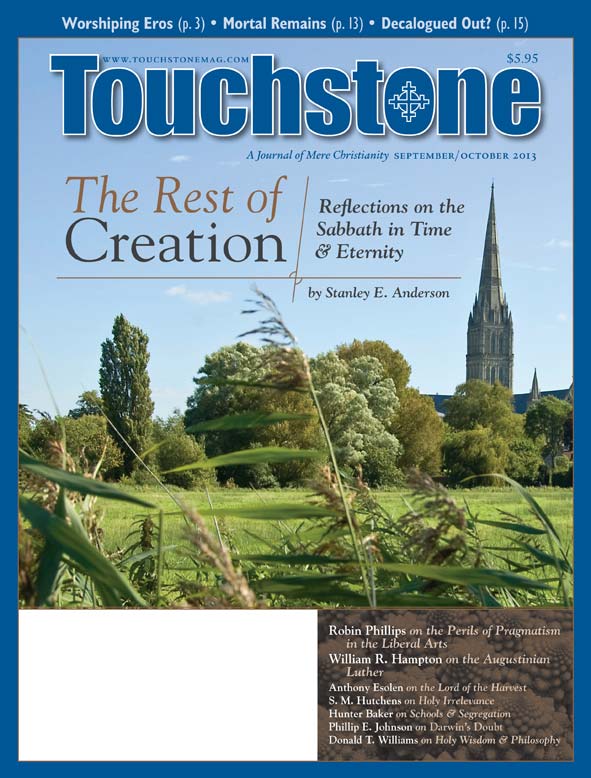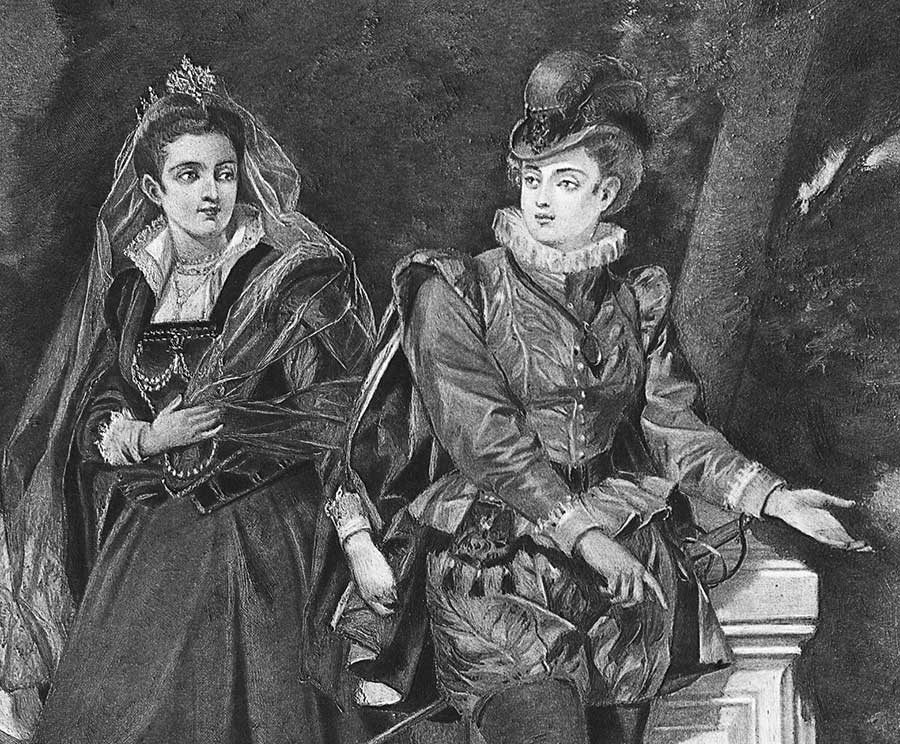Editorial
American Idolatry
Meditations on Same-Sex Marriage
In his 1835 book Democracy in America, Alexis de Tocqueville noted that for Americans, "equality is their idol." Among such a democratic people, he reports, "there are certain epochs at which the passion they entertain for it swells to the height of fury." They prefer equality in freedom, he noted, but if "they cannot obtain that, they still call for equality in slavery." Even barbarism, servitude, and poverty are acceptable offerings to "this irresistible passion."
The same-sex marriage debate might have focused on the purpose of sexuality, or the nature of homosexuality, or the etiology of marriage. Instead, the dominant conversation has been about equality, and the passion generated has been ferocious. Recent polls showing majorities of Americans in favor of this conjugal novelty testify again to Tocqueville's prescient warning.
Morality Redefined
Father John A. Ryan, the early-twentieth-century social ethicist at the Catholic University of America, authored an essay in 1916 on "Family Limitation." Addressed to his fellow priests, the article sought to clarify Catholic teachings on birth control in light of new publicity regarding this practice stirred up by Margaret Sanger. Simple observation, Ryan said, showed that "the generative faculty has as its specific and essential end the procreation of offspring." Consequently, "all positive methods of birth prevention" were "grievous sins," because they violated "the sanctity of nature." As he neatly summarized, "Actions which are in harmony with nature are good; those which are not in harmony with nature are bad."
Several years later, Mrs. Sanger clarified her own views in an article for The American Mercury. Her fundamental goal, she said, was to separate "the ideas of [sexual] love and procreation." Rejecting all talk of "nature," she also neatly summarized her take on moral order: "morality is nothing but the sum total, the net residuum, of social habits, the codification of customs. . . . The only 'immoral' person, in any country, is he who fails to observe the current folkways."
I suspect that neither Fr. Ryan nor Mrs. Sanger ever gave a thought to same-sex marriage. All the same, the latter's basic goal, combined with her definition of morality, opened a clear, compelling path to homosexual wedlock. Put another way, the debate over same-sex marriage is, in an important way, merely a continuation of the modern debate over birth control, begun a century ago. Moreover, since "current folkways" surely include the full normalization—even celebration—of homosexuality, it is also growing ever more clear who now constitute the "immoral."
Eros Returns
"Eros has come alive again." Protestant theologian Carl F. H. Henry offered these words at a 1968 consultation on "The Control of Human Reproduction," sponsored by Christianity Today. At first, I understood this comment as a metaphor that Dr. Henry found useful in helping to justify his newfound sympathy for birth control. As I thought about it more, however, I concluded that this phrase was no mere linguistic device. Rather, I think it was a statement of truth: the Greek god of erotic love has indeed returned.
Eros is a false god, to be sure; nonetheless, he is a real and powerful one, in his own way. His gospel is simple: pursue all forms of sexual pleasure, and allow nothing—not laws, not customs, not prior vows—to stand in the way. Contraception liberates heterosexual trysts from the risks of children; abortion and infanticide clean up the mistakes. Homosexual assignations, free from the perils of fertility, are richer and more complete expressions of sexual passion, deserving of favor.
Margaret Sanger was an early acolyte for Eros, preparing the way for his twentieth-century return. A greater prophet was Hugh Hefner; his playboy philosophy served in practice as a theology for a god seeking to resume his earthly throne.
Allan C. Carlson is the author of numerous books, including Family Questions: Reflections on the American Social Crisis and The American Way: Family and Community in the Shaping of the American Identity. He attends St. Paul Lutheran Church in Rockford, Illinois. He is a senior editor of Touchstone.
subscription options
Order
Print/Online Subscription

Get six issues (one year) of Touchstone PLUS full online access including pdf downloads for only $39.95. That's only $3.34 per month!
Order
Online Only
Subscription

Get a one-year full-access subscription to the Touchstone online archives for only $19.95. That's only $1.66 per month!
bulk subscriptions
Order Touchstone subscriptions in bulk and save $10 per sub! Each subscription includes 6 issues of Touchstone plus full online access to touchstonemag.com—including archives, videos, and pdf downloads of recent issues for only $29.95 each! Great for churches or study groups.
Transactions will be processed on a secure server.
more from the online archives
calling all readers
Please Donate
"There are magazines worth reading but few worth saving . . . Touchstone is just such a magazine."
—Alice von Hildebrand
"Here we do not concede one square millimeter of territory to falsehood, folly, contemporary sentimentality, or fashion. We speak the truth, and let God be our judge. . . . Touchstone is the one committedly Christian conservative journal."
—Anthony Esolen, Touchstone senior editor









